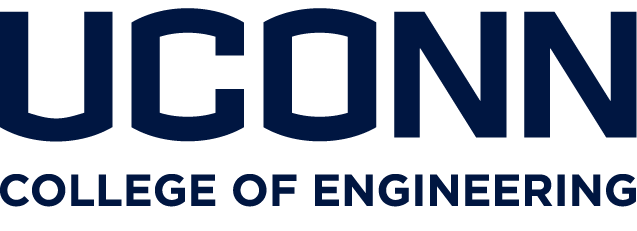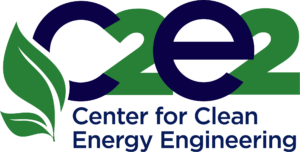C2E2 Welcomes Dr. Beykal to her Newest Home at UConn
By: Ben Donohue & Olivia Ortegon
We welcome our newest member and Assistant Professor of Chemical and Biomolecular Engineering, Dr. Burcu Beykal, to the University of Connecticut and the Center for Clean Energy Engineering (C2E2). Dr. Beykal completed her doctoral and postdoctoral studies at Texas A&M University specializing in process systems engineering, data-driven modeling, and data analytics. Although Dr. Beykal is a chemical engineer by training where she studied at Koç University in Istanbul, Turkey, her research optimizes models to solve problems in energy and environmental systems.
When asked the question, “why UConn?”, Dr. Beykal highlighted the competitive engineering program and the students, both graduate and undergraduates, being “top-notch, high quality students”. Since more than half of the engineers in the state of Connecticut are graduates of UConn, she knew that the University was building something special and wanted to be a part of it.
Her interest in clean energy and engineering stems from her confidence in math and science from high school. These interests continued to develop and eventually led to her pursuit of clean energy technologies. Dr. Beykal highlights the problem of having an increasing global population and meeting the energy demands of that population without increasing emissions. Renewable energy comes with challenges of where or how to store it, which led her in the direction of battery technology. The possible transition of batteries and understanding their supply chain has the potential to change the pathway to mainstream renewable energy production and utilization, which is a strong focus for her.
Dr. Beykal’s expertise is solving difficult problems using data-driven modeling and optimization. With the help of artificial intelligence (AI) and increasing computational power, we can now solve problems that were unsolvable before. This can be applied to clean energy technologies by how we look at material discovery, process synthesis pathways for alternative fuels, and the incorporation of renewable energy technologies to existing systems. She highlighted a key project while at Texas A&M by determining how to optimally design energy systems with multi-scale complex network structures. “When you have a diverse selection of energy generation and conversion technologies that are highly complex, integrated, and nonlinear, how can you find the optimal combination of technologies that will satisfy the energy demand and the system constraints, while maximizing economic and environmental benefits?” Dr. Beykal asks. “You can seek ways to increase the efficiency of the conversion technology and explore pathways to generate more energy through incorporating other processes but you still need to know by which conditions you should be operating these systems and identify solution methods that can handle the underlying system complexities efficiently”.
Her career goals are not solely focused around her research. Dr. Beykal’s main and future goals are to continue to create a competitive program at UConn through research groups by attracting national and international talent with interests in process systems engineering. In order to do this, there has to be continual recruitment of excellent students, expanding the research field, advocating for the students, encouraging them to participate in academic and industrial platforms, and facilitating interactions with a wider community to continue to build a competitive field.
For anyone interested in engineering and/or clean energy, Dr. Beykal gives three pieces of advice; perseverance, fundamentals, and an emphasis on clean energy increase day by day. “Perseverance pays off. Engineering education is not an easy task. You need to work hard for it and be patient with yourself. It takes time to understand some of the concepts, so go the extra mile to learn them.”
She continues, “Keep putting knowledge on top of what you already have. In order to be successful, you need to have strong fundamentals. If you forget, you have to go back and look at your notes and relearn them. This is true for both undergrad and grad studies and also extends to academic research. If you want to advance to the next level and do cutting-edge research, you need to understand the fundamentals of what makes any problem special and challenging.”
“Clean energy is an interdisciplinary research. You need to be a team player when you are in this research field. You must be able to understand multiple concepts and work with them to make an impact. If you have strong fundamentals, precision and dedication towards your work, you will make a huge impact. Clean energy engineering is the next generation of interdisciplinary fields and we’re seeing that now.”

